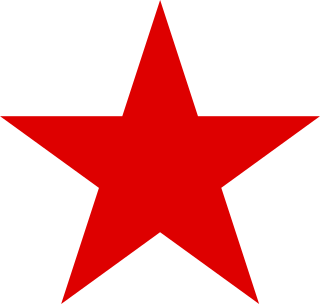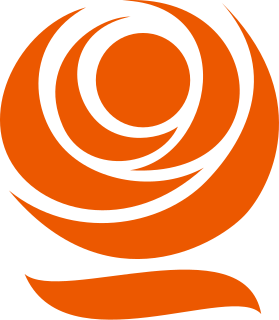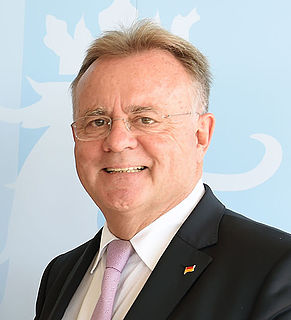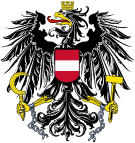
The Austrian People's Party is a conservative Christian-democratic political party in Austria. A successor to the Christian Social Party of the late 19th and early 20th centuries, it was founded immediately following the reestablishment of the Republic of Austria in 1945 and since then has been one of the two largest Austrian political parties with the Social Democratic Party of Austria (SPÖ). In federal governance, the ÖVP has spent most of the postwar era in a grand coalition with the SPÖ. Most recently, it has been junior partner in a coalition government with the SPÖ since 2007. However, the ÖVP won the 2017 election, having the greatest number of seats and formed a coalition with the far-right Freedom Party of Austria (FPÖ). Its chairman Sebastian Kurz is the youngest Chancellor in Austrian history.

Styria is a state, or Bundesland, located in the southeast of Austria. In area it is the second largest of the nine Austrian federated states, covering 16,401 km2 (6,332 sq mi). It borders Slovenia and the Austrian states of Upper Austria, Lower Austria, Salzburg, Burgenland, and Carinthia. The capital city is Graz which had 276,526 inhabitants at the beginning of 2015.

The Communist Party of Austria is a communist party in Austria. Established in 1918 as the Communist Party of German-Austria (KPDÖ), it is one of the world's oldest Communist parties. The KPÖ was banned between 1933 and 1945 under both the Austrofascist regime and the Nazi German control of Austria after the 1938 Anschluss. It played an important role in the Austrian resistance against the Nazis.

The Austrian Green Party is a green political party in Austria.

The Czech Social Democratic Party is a social-democratic political party in the Czech Republic. It holds 15 seats in the Chamber of Deputies following the 2017 legislative election, losing 35 seats. The party has been led by Jan Hamáček since 2018. It has been a junior coalition party within a minority cabinet since June 2018, and was a senior coalition party from 1998 to 2006 and from 2013 to 2017.
A dominant-party system, or one-party dominant system, is a system where there is "a category of parties/political organisations that have successively won election victories and whose future defeat cannot be envisaged or is unlikely for the foreseeable future." Many are de facto one-party systems, and often devolve into de jure one-party systems. Usually, the dominant party consistently holds majority government, without the need for coalitions.

The Austrian Landtage are the unicameral legislatures of the nine Austrian states, according to the Constitution of Austria deciding in all matters unless explicitly subject of federal legislation. On federal level the Landtage are represented in the Federal Council.

This article provides information on elections and election results in Austria.

The Alliance for the Future of Austria is a right-wing populist and national conservative political party in Austria.

The Lower Saxon Landtag or the Parliament of Lower Saxony is the state diet of the German state of Lower Saxony. It convenes in Hanover and currently consists of 137 members consisting of five parties. Since 2017 the majority has been a coalition of the Social Democratic Party and the Christian Democratic Union, supporting the cabinet of Minister-President Stephan Weil (SPD).

The Citizens' Forum Austria is an Austrian political party mainly active in Tyrol. It was founded by president of the Tyrolean branch of the Austrian Chamber of Labour Fritz Dinkhauser, who was joined by the popular anti-transit activist Fritz Gurgiser of the Transitforum Austria-Tirol. At the 2008 state election, the Citizens' Forum stood under the name Fritz Dinkhauser List – Citizens' Forum Tyrol and got 18.3% of the vote, thus becoming the second-largest party with seven seats. The party contested the 2008 early national election as well, but received only 1.76% of the vote and failed to obtain a seat. In the 2013 state election, the Citizens' Forum garnered 5.64% of the vote, winning two seats in the state legislature.

The Lower Austrian state election of 2003 was held in the Austrian state of Lower Austria on 30 March 2003. The election saw the Austrian People's Party win a majority of the seats, while the Freedom Party of Austria only won about a quarter of the votes they had won in the 1998 election.

The Party of Reason is a libertarian political party in Germany founded in 2009 by the journalist and author Oliver Janich.

The Team Stronach, full name Team Stronach for Austria, was a Eurosceptic, right-wing populist political party in Austria founded by and named after Austrian-Canadian businessman Frank Stronach. It was dissolved in August 2017.

The Social Democratic Party of Austria is a social-democratic political party in Austria that is, along with the People's Party, one of the country's two traditional major parties.

The Salzburg state and municipal elections of 2013 were held in the Austrian state of Salzburg on 5 May 2013. The coalition of the Social Democratic Party of Austria and the Austrian People's Party lost 9 seats, while the Greens won 5 seats. The Freedom Party of Austria only won 1 seats and the Team Stronach, which was standing for election in Salzburg in the first time, 3 seats.

Legislative elections were held in Austria on 15 October 2017. The Austrian People's Party (ÖVP) emerged as the largest party in the National Council, winning 62 of the 183 seats. The Social Democratic Party (SPÖ) finished second with 52 seats, slightly ahead of the Freedom Party of Austria (FPÖ), which received 51 seats. NEOS finished fourth with 10 seats, and PILZ entered parliament for the first time and came in fifth place with 8 seats. The Green Party failed to cross the 4% threshold and was ejected from parliament, losing all of its 24 seats.

The Lower Austrian state election of 2018 was held in the Austrian state of Lower Austria on 28 January 2018. Since 2003 the Austrian People's Party has had a majority of the seats. NEOS contested Lower Austria for the first time and won 3 seats, while the Social Democratic Party of Austria seat share remained unchanged. The Freedom Party of Austria won 8 seats, doubling their standing in the state, while the Greens only defended 3 of their 4 seats. Team Stronach and the KPÖ did not contest the election.

The Burgenland state election of 2015 was held in the Austrian state of Burgenland on 31 May 2015. The major parties both lost votes, with the Social Democratic Party losing 6% of the vote and the Austrian People's Party coming second with 29% of the votes, 5% lower than the last election. Third-parties such as the Freedom Party, the Greens and the regional LBL made gains, all doubling their share of seats in the state parliament.



















